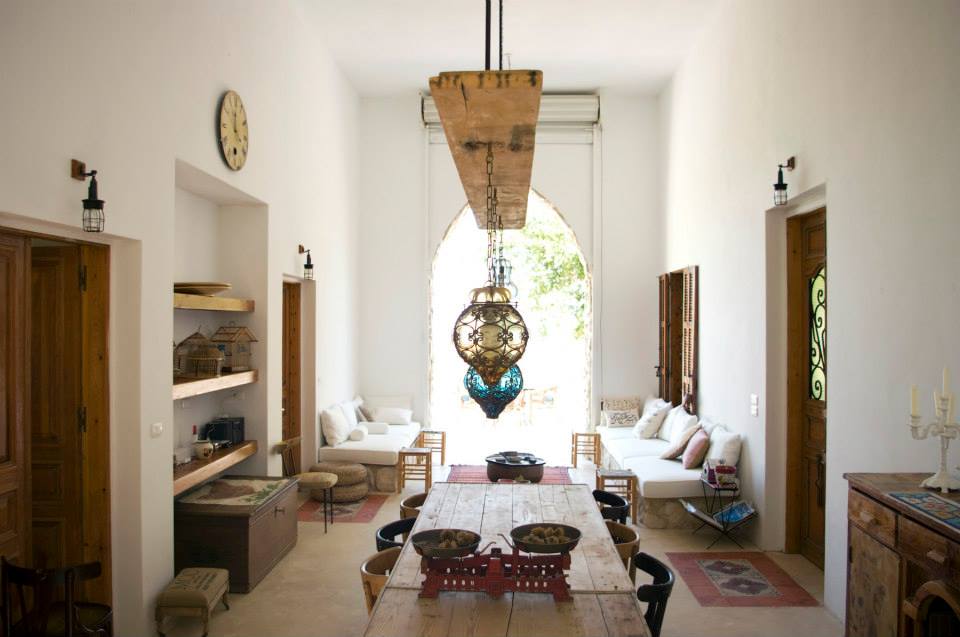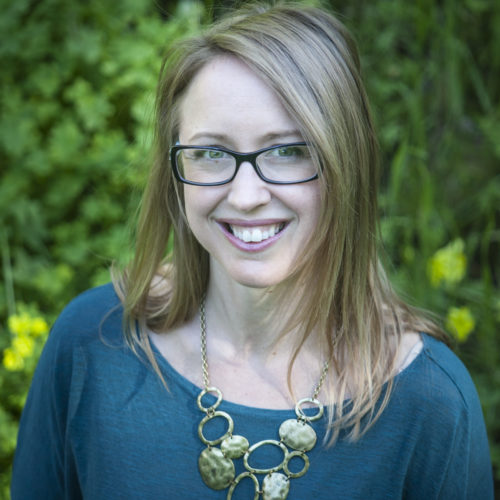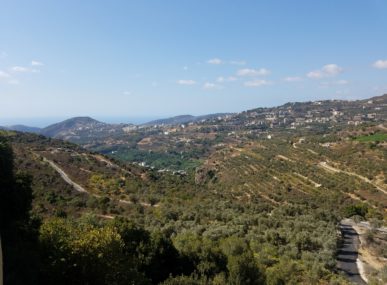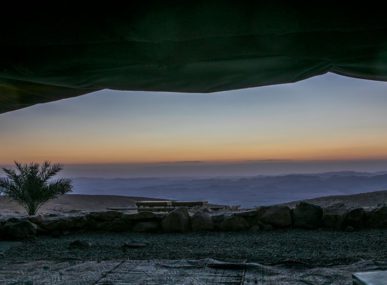When Colette Kahil was growing up in Lebanon during wartime (around 1979), she had never heard of the concept of guesthouses. It was only years later, when Kahil moved to London for a few years when she first heard about bed and breakfasts. She became enchanted, visiting as many as she possibly could.
“I’d travel all over England and stay in guesthouses, sometimes I’d go to Paris,” says Kahil, who’s a mosaic artist. “That’s when I said to myself: I’m going to do this in Lebanon one day.”
When she moved back to Lebanon, Kahil knew a guesthouse was her dole. So, with barely a thought, she bought a parcel of land near Byblos by the coast of the Mediterranean. She wanted a house influenced by traditional Lebanese construction, with rooms and sitting areas branching off from a central liwan, which is a vaulted room found in the center of ancient Mediterranean homes.
“I had been collecting antiques for years, and I needed a place to put them,” says Kahil. “That’s basically how it happened.”
The birth of Beit al Batroun:
Kahil partnered with her architect friend Wadih Chehaybar to build the spacious home with five bedrooms, a swimming pool, and plenty of shaded seating areas beneath the trees. She sifted through her antique collection to find the perfect pieces of furniture and art for each part of the house.
“Before I built my house I would travel to Beirut where they were tearing down old homes to build skyscrapers, and I’d buy the old windows and doors from those homes,” says Kahil. “When people come to my house they always ask how old it is, thinking its 100 years old. But it’s just built with upcycled materials.”
Kahil is an artist by trade, creating beautiful mosaics, which she’s hung throughout her guesthouse as well. When the doors first opened in 2013, every room of the guesthouse was booked throughout that first summer.
Along with providing a peaceful enclave just a short distance from the sea, Kahil also makes meals for her guests.
“Everything here is homemade,” says Kahil. “It takes me two hours to prepare breakfast, and my foreign guests [discover] Lebanese food they are not familiar with.”
Homemade breakfasts are a delicious smorgasbord of homemade jams, a variety of cheeses, manouche (a thin crepe with olive oil and thyme), fresh juice, tomatoes, cucumbers, mint, and olives from the garden. What the guests don’t eat is given to the chickens or gets composted.
Beit al Batroun is not only furnished and decorated with used and upcycled materials, but also has a commitment to the environment. The guesthouse practises self-sustainability and eco-mindfulness through composting, growing its own produce, and using solar power energy.
“I grow much of my own herbs – parsley, mint, basil, and radish,” says Kahil. “Also tree fruit like apricots, figs, lemons and olives. I like the feeling that I can contribute even if it’s just a little bit to the environment.”







